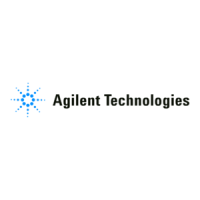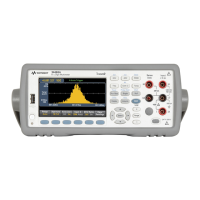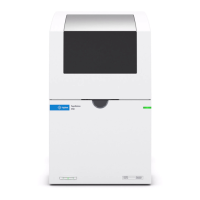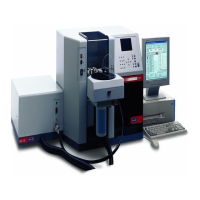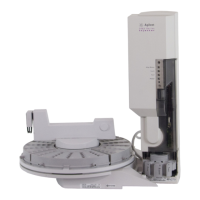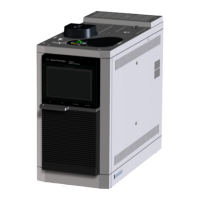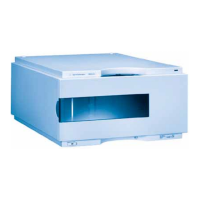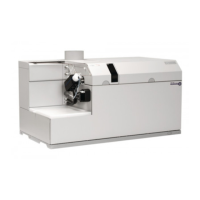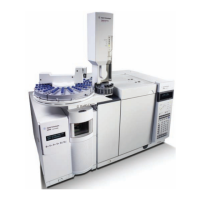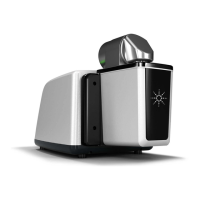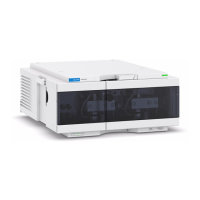2 Hardware Overview
Atmospheric Pressure Chemical Ionization (APCI) source
37 Agilent Triple Quadrupole LC/MS System User Guide
Atmospheric Pressure Chemical Ionization (APCI)
source
In Atmospheric Pressure Chemical Ionization (APCI), the LC mobile phase is
sprayed through a heated vaporizer (typically 250 °C to 400 °C) at atmospheric
pressure. The heat vaporizes the liquid. The resulting gas-phase solvent
molecules are ionized by electrons discharged from a corona needle.
The solvent ions then transfer charge to the analyte molecules through chemical
reactions (chemical ionization). The analyte ions pass through a capillary
sampling orifice into the mass analyzer. APCI is applicable to a wide range of
polar and nonpolar molecules.
APCI rarely results in multiple charging, so APCI is typically used for molecules
smaller than 1,500 u.
Because high temperatures are also involved, APCI is not appropriate for analysis
of large biomolecules. APCI is used with normal-phase chromatography more
often than electrospray is because the analytes are usually nonpolar.
Figure 16. APCI cover, ion source, and spray shield
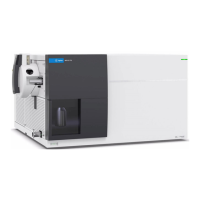
